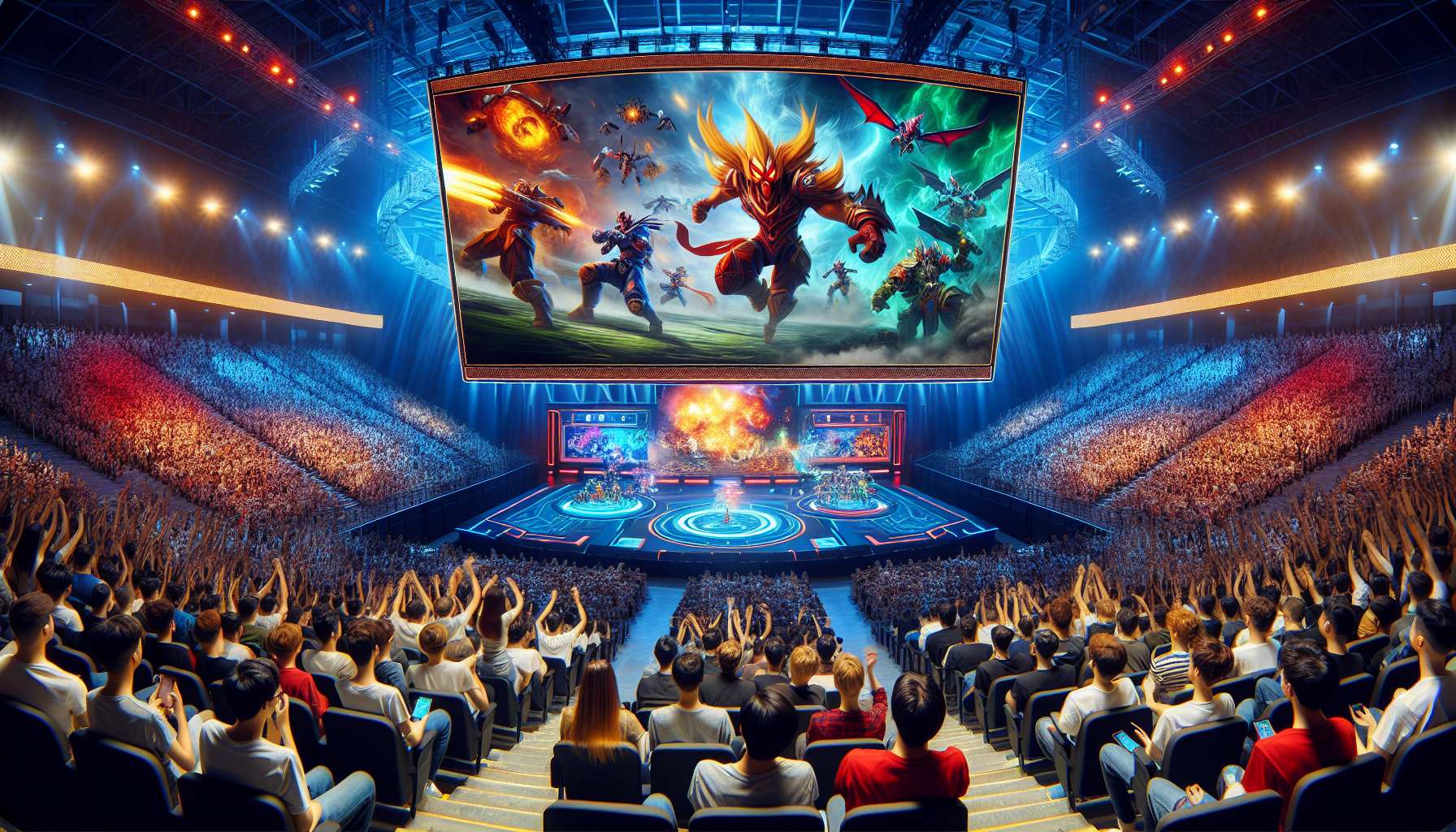In recent years, the world of competitive gaming, known as e-sports, has experienced a meteoric rise, fundamentally transforming the gaming industry and redefining entertainment as we know it. Originally regarded as a niche pastime, e-sports has now emerged as a global phenomenon, attracting millions of fans, lucrative sponsorships, and significant media coverage. This explosive growth is not just reshaping the gaming industry but also influencing cultural trends and technological advancements.
Evolution of E-sports
The origins of e-sports can be traced back to the early days of video gaming, with informal competitions taking place amongst players. However, it wasn't until the late 1990s and early 2000s that organized gaming competitions began to take shape. Games like "StarCraft" and "Counter-Strike" were pivotal during this period, laying the foundation for professional e-sports leagues and tournaments. As internet connectivity improved, so did the ability for players to compete globally, raising the stakes and intensity of these competitions.
The 2010s marked a significant expansion in e-sports' popularity, fueled by advancements in streaming technology and platforms like Twitch. These developments allowed fans to watch matches live, creating a spectator sport akin to traditional physical sports. Communities began to flourish around popular titles, fostering a sense of camaraderie and shared passion among players and fans alike.
Popular Games and Genres
Today, e-sports encompasses a wide range of genres, each with its own unique appeal. Multiplayer online battle arenas (MOBAs) like "League of Legends" and "Dota 2" are among the most popular, known for their strategic gameplay and team dynamics. First-person shooters (FPS) such as "Counter-Strike: Global Offensive" and "Overwatch" continue to captivate audiences with their fast-paced action and precision. Additionally, battle royale games like "Fortnite" and "PUBG" have risen to prominence, offering a new kind of competitive experience characterized by survival and adaptability.
These games are more than just digital entertainment; they serve as platforms for professional gamers to showcase their skills on the global stage. The best players and teams often become celebrities in their own right, amassing large followings and securing lucrative sponsorship deals.
Impact on the Gaming Industry
The rise of e-sports has had profound implications for the gaming industry. Game developers are increasingly focusing on creating competitive titles with built-in support for tournaments and spectator modes. This shift has led to an increased emphasis on balance, fairness, and continuous updates to keep the gameplay fresh and engaging. Moreover, the success of e-sports has attracted significant investment from major companies, not only from the tech and gaming sectors but also from mainstream brands looking to tap into the vibrant and youthful e-sports audience.
E-sports has also revolutionized how games are marketed and monetized. In-game purchases, battle passes, and exclusive event skins have become standard practices, generating substantial revenue while enhancing player engagement.
Future Prospects in Competitive Gaming
Looking ahead, the future of e-sports appears bright and promising. As technology continues to advance, virtual and augmented reality may introduce new dimensions to competitive gaming, creating even more immersive and interactive experiences. Additionally, increased recognition and support from traditional sports organizations could see e-sports integrated into major sporting events, including the Olympics.
The growing acceptance of e-sports as a legitimate form of entertainment is likely to continue, driven by the passionate fan base and the unique global community it fosters. With educational institutions beginning to offer scholarships and programs dedicated to e-sports management and development, the infrastructure supporting e-sports will continue to evolve and mature, establishing itself as a cornerstone of digital entertainment in the 21st century.
In conclusion, the rise of e-sports represents a fundamental shift in how we perceive gaming and its potential as a professional and cultural entity. Its impact on the gaming industry is undeniable, and as it continues to evolve, it promises to redefine what it means to be a spectator and a player in this dynamic digital era.
